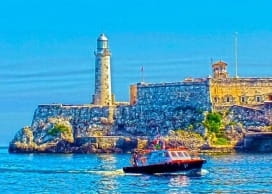
Havana ephemeris. August 27.
1869. Laura Martínez de Carvajal is born in Havana.
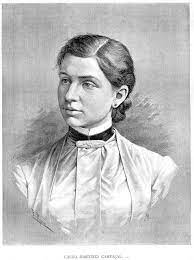
Born to Spanish parents living in Cuba, she finished elementary school and then high school with excellent grades.
She later enrolled for a Bachelor of Medical Sciences at the University of Havana and in 1889 she became the first Cuban to obtain a medical degree and practiced as an ophthalmologist. During her university life she had to demonstrate the intelligence that she possessed and also overcome the innumerable obstacles imposed by a society in which women were discriminated against.
By dint of perseverance and respect, she gradually earned the admiration of the rest of the students and teachers.
Together with her husband, she attended numerous medical congresses. She also collaborated with him on a large number of publications such as “Physiological Notes”, “Clinical Observations”, “Ocular Leprosy”, as well as the three volumes of “Clinical Ophthalmology”.
Laura was part of the Bando de Piedad, which adopted and cared for abandoned children and animals.
In 1917, several years after the death of her husband, she acquired a farm that she called “El Retiro”. She there she installed a free school for poor children that she attended with her daughter Maria de Ella.
She lived on that farm until the end of her existence, which occurred in Havana on January 24, 1941.
1904. Vidal Morales Morales dies in Havana.
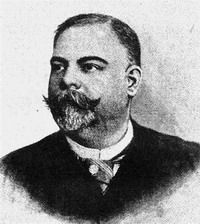
Lawyer, journalist and biographer, he carried out works related to the historical and literary past of Cuba. He formed one of the most complete libraries on national affairs at that time. He studied his first studies in his hometown and in 1870 he graduated with a degree in Civil Law from the University of Havana. His main contributions were aimed at the dissemination of historical-legal articles, in the main periodical publications of his time.
He elaborated important historical works such as: "Men of 68" and "Notions of History of Cuba". At his death he left several unpublished works.
His birth took place in the Cuban capital on April 21, 1848.
1946. The writer José Antonio Ramos dies in Havana.
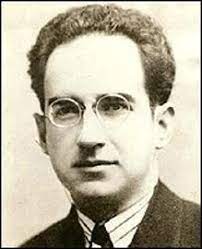
He was one of the main promoters of Cuban theater to which he contributed various titles. His works reflected social and political problems. He founded the Society for the Promotion of Theater in 1910.
He was considered one of the most illustrious intellectuals of the first half of the twentieth century. He contributed to the development of Cuban culture as a writer, playwright, critic, but also for having been the first to worry scientifically about the organization and representation of information in Cuban libraries.
His birth took place in the Cuban capital on April 4, 1885.
1971. Commander in Chief Fidel Castro summarizes in the Plaza Cadenas of the University of Havana an act of solidarity of the World Federation of Democratic Youth and the International Union of Students with the Cuban Revolution.
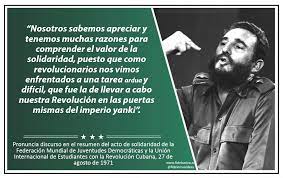
In the initial part of his speech, Fidel pointed out: “We know how to appreciate and we have many reasons to understand the value of solidarity, since as revolutionaries we were faced with an arduous and difficult task, which was to carry out our Revolution in the very gates of the Yankee empire.”
1982. The singer Pacho Alonso dies in Havana.
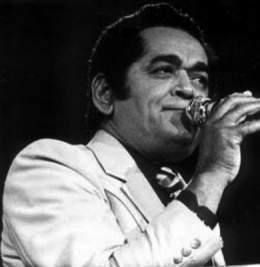
Born on August 22, 1928 in Santiago de Cuba, he became a singular interpreter of popular music in Cuba.
It was one of those artists that he managed to impose a unique stamp on his profile and also turned out to be a brave defender of the best and most legitimate of Cuban dance music.
In 1981 Pacho Alonso was conferred the distinction for National Culture for his contribution to the development of music. And when he enjoyed solid prestige and was still in the fullness of his faculties, his sudden death occurred in Havana.
1990. Commander in Chief Fidel Castro delivers a speech at the third graduation of the Contingent of the Institute of Medical Sciences of Havana, at the "Karl Marx" Theater.
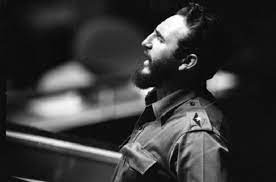
He states: “If I am going to express something, it is the great satisfaction that we all feel when seeing this graduation and everything that this graduation means, as one more step in the advancement of our country within this field of medicine, where we are already becoming in a power really.”
Later he highlights: “This year the largest graduation in the history of our country has taken place: more than 4,000 doctors, see what a tremendous and impressive force, with which we doctors are already around 40,000 in this country. ”
That same day, Fidel speaks at the inauguration of the VIII United Nations Congress on Crime Prevention and Treatment of Offenders, held at the Convention Center in Havana.
He points out: “You will not find in Cuba any form of organized crime, nor the generalized climate of violence that characterizes the vast majority of current societies…”